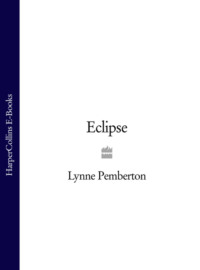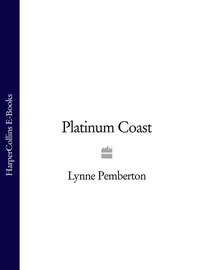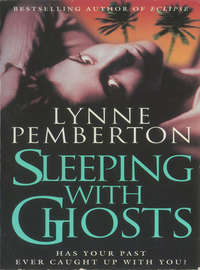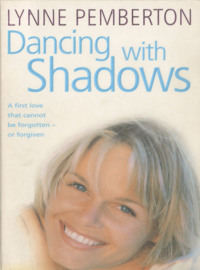
Полная версия
Marilyn’s Child
The only time I really enjoy apples is when I get invited to Lizzy Molloy’s house and her mother makes apple pie. My mouth waters anew at the thought of the sweet apple taste, mixed with melt-in-your-mouth pastry and lashings of thick clotted cream. Lizzy is my second best friend after Bridget. I sit next to her in school. I’m much brighter than Lizzy, and I let her copy all of my homework. Bridget said that was the only reason she invited me to her house.
Once, when I fell out with Bridget – I can’t even remember what about – I told Lizzy she was my best friend, and would be for ever and ever. Of course it was a lie; Lizzy could never replace Bridget. Lizzy was from another world, she had a mam and da, a sister and two brothers, one in America – an accountant in Baltimore, thank you very much. The Molloy house, though not big, was spotless, and it always smelt of cooking, the sort of smells that make the mouth water. I never wanted to admit it, even to myself, but Lizzy’s main attraction was her mother’s cooking. I had food at Lizzy’s like I’d never tasted before. Thick gravy made from meat juices with chunks of onion in it, poured over floury potato mixed with real butter and not margarine; the same butter spread thick on doorstep slices of home-made bread and scones, washed down with gallons of cherry lemonade, the fizzy, quench-yer-thirst-from-the-pop-van kind. Yes, being Lizzy’s friend had its advantages. And you could eat off the Molloy floors, so Bridget said, although why you’d want to when you could eat off a lovely polished mahogany table with a white lace tablecloth was beyond me.
Every room in the Molloy house was crammed full of wooden ornaments Mr Molloy made in his spare time, and beautiful patchwork cushions and blankets Mrs Molloy made in her spare time. I often wondered when they had any time left over for five kids. One son had died when he was three; Michael, the lad in America, had married very well and was, according to Mrs Molloy, doing very nicely, thank you very much. Mrs Molloy had an odd habit of tagging ‘thank you very much’ on the end of all her sentences. And there were a lot – sentences, I mean. She never shut up. I’d asked Lizzy about it once, and had been told to mind my own bloody business.
My knickers are hanging around my knees, the right leg lower than the left owing to the loose elastic. I wipe my backside with a square of newspaper and pull my knickers up to my waist, thinking of the underwear Lizzy has ordered from her friend Sally Heffernan’s mother’s catalogue: a bra and pants set in black lace, the see-through type with little red satin bows on the waist of the panties and the bra straps. Lizzy is very thin with a flat chest and one of those stomachs that go in – concave, I think, is the word – and I’m not sure the bra and pants will look the same on her as they do on the model in the picture, but I don’t say so. The underwear is being sent to Sally’s house, ’cause if Mr Molloy got wind of it there would be hell to pay, and the only thing she’d feel next to her backside would be his belt buckle. Lizzy wants to wear them for her third date with Frank Sheridan.
‘Honest to God, Lizzy, his eyes will pop clean out of his head if he sees you looking like that,’ Sally had said, her eyes popping.
Lizzy had winked. ‘Who says he’s going to see me?’
At that point I’d piped up with, ‘To be sure, if Frank’s not going to see you in the sexy lace you might as well just wear your old blue school knickers with the holes in the arse.’
Sally had said, giggling, ‘Kate’s right. What’s the point of spending all that money on underwear if nobody is going to see it?’
At this Lizzy had pulled a long face, the one that makes her look daft. ‘Wearing sexy underwear makes me feel different. You know, grown up and sexy. Who knows, I might let Frankie have a quick peek. Let him see what he can have if he waits awhile.’
Giving Lizzy an affectionate pat on the arm, Sally said, ‘If he puts a ring on yer finger and marches you down the centre aisle is more like it, Lizzy Molloy.’
Lizzy had stuck out her tongue but hadn’t argued. She knew Sally was right, so did I, only Lizzy didn’t want to admit it. She would tease and titillate Frank until she got a ring on her finger, then she’d let him into the secret place between her legs, and in her head she’d live happily ever after in a thatched creeper-clad house in the country, the one she went to in her dreams.
The one she’d have, more likely, would be a two-up two-down middle-of-terrace house with a new bathroom and a shiny kitchen on hire purchase – if she was lucky and Frank kept up the payments and didn’t throw his wages down his throat like his father and grandfather before him. Both are dead now. The drink killed them, according to Mother Paul. ‘The demon drink,’ she’d said, ‘puts the devil in good men.’
‘To be sure, it’ll be for me to decide when I wear the underwear, and who sees it. It’s costing me four weeks’ wages and I don’t have to tell either of you how hard I work on Saturdays for that old miser Sheehan.’
I can’t resist saying, ‘Not half as hard as Bridget for the oul’ bitch Mary O’Shea. Jesus, Bridget slaves in that shop from seven in the morning ’til gone seven at night, sometimes eight by the time she’s cashed up. Honest to God, she’s as mean a woman as ever lived. Wouldn’t give you the drippings off her nose, and that’s no lie. The oul’ bugger scrimps on everything: her clothes are darned to death, she’s cobbled her shoes so many times she’s two inches taller, and still she cuts up newspaper for the lavvie when the shelves are stacked full of toilet roll. Gives Bridget strict instructions when she makes her a sandwich to cut the bread wafer-thin.’ I form a tiny space with my thumb and forefinger. ‘She’s got an old press in the back shop (full of rubbish, so she says), and keeps the key on a chain around her neck like a bloody gaoler. Bridget reckons it’s stuffed with money, says that she’s forever moaning about bank charges, and how when her pa was alive and running the store he never believed in banks, said all bank managers were daylight robbers – worse than the feckin’ English.
‘Apparently he’d fought for a free Ireland.’ I imitate Mary O’Shea’s thin voice: “‘If it wasn’t for good men like me da, you, Bridget Costello and Kate O’Sullivan, would be working for some Englishman. A Protestant heathen, not God-fearing and generous like me. Yer should be grateful, thankin’ the Lord and me every day of yer life to be living in a free country, after eight hundred years of the English.”
‘Well,’ I said, ‘I’ll not be thanking the likes of Mary O’Shea, or the good Lord for living in this wet hole of a place, nor will I be blaming the English for all of Ireland’s problems.’
Sally, a finger to her lips, had said, ‘Hush, Kate, you’ll get me in no end of trouble talking like that.’ She lowered her voice. ‘Me da’s an IRA man, believes in the cause, hates the English. You know how it is …’
Distracted by a noise in the yard outside the toilet I forget about Sally’s dad and Lizzy’s underwear. It’s Mother Peter talking to Paddy Fitzpatrick, the man who owns the farm shop a couple of miles from the orphanage. With the flat of my ear pressed against the door I strain to hear what they are saying.
‘It’s very sorry I am, Paddy, to hear of your troubles, but like I was telling you last week my hands are tied, there’s naught I can do.’
‘What about the three girls due to leave?’
‘Bridget Costello, Mary Shanley and Kate O’Sullivan come of age this year. Kate’s the first, sixteen in a few weeks’ time. She’s an artist, got a grand future ahead of her, paints like her hands were touched by something sent from heaven. And Mary, sure, she’s a lovely child, going to enter a religious order. Bridget Costello, well, I’m not too sure about that one, forever talking about going across the water to that pagan country England. Sure that would be the death of her.’
A metallic sound drowns out all other noise, and I realize Paddy is closing the van doors. Then he’s speaking again.
‘Aye, she’s a grand lass, Kate, a sight for sore eyes. I remember coming up here when she first came to the orphanage. If me memory serves me well we had a fearful thunderstorm that night. Mother Superior, God rest her soul, had asked for a delivery of potatoes and cabbage. I was near out of cabbage, so brought some beets instead. She was grateful, said she liked beets. I says they were good for her, and the kids, no rumbling bellies if you fill ’em up with beetroot soup and potato pancakes. That same night as I’m pulling out of the gates who should I see but Father Sean Devlin – almost knocked him down. You remember Father Devlin, don’t you, Mother Peter?’
There was no reply. I assume she must’ve nodded, because I heard Paddy’s voice again: ‘He was in a fearful hurry, sweating like a pig, his cheeks bright red and all puffed out, like. He was carrying something in his arms, a little bundle. At first I wasn’t sure what it was, then it moved, and I could see it was a baby wrapped up real tight in a blanket. In fact it was the blanket that attracted my attention. I’d never seen anything like it: bright red and yellow zig-zags – Mexican, I think. I wound the window down and doffed me cap, as you do, but the priest just looked at me like he didn’t know me from Adam, and him usually so chatty and friendly like, and me a God-fearing man who hasn’t missed church since me communion. So I asks him if everything is all right, like, since he seems sort of agitated. Not stopping, he mumbles something about a baby having come a long way, and getting her into the warm. I don’t drive off straight away; I watch the priest in the rear-view mirror, running up to the front of the house, and I wonder why he’s so worked up, and why he’s carrying a baby. Aye, I remember the day well. How could I forget? The same day me missus went into labour. Eight hours later our Molly was born. Now she’s gone and got herself pregnant, Jesus, Mary and Joseph, and her not yet sixteen. If I wasn’t such a God-fearing man meself, and for the love of God I love me daughter – our Moll has always been the apple of me eye – I’d send her far away up north to have the baby. The father, Sean, is naught but a lad himself. He’s gone missing, can’t lay salt to his tail, last seen boarding a boat headed for England. If I could lay me hands on the young bugger right now, I’d tan his hide so hard he wouldn’t be able to walk for a month at the very least. But soon as he was able, I’d make him walk up the aisle with our Molly.’
‘Now, now, Mr Fitzpatrick, calm yourself. Sean O’Halloran was an altar boy, I seem to recall. The son of Tom O’Halloran … A good man, Tom. The lad’s no more than a slip of a thing, no bigger than an ounce of copper. In saying that, I’m not condoning what young Sean has done, not fer a minute. Sure, the young pup needs a good hiding and to be made to do the right thing by Molly …’ She sighed. ‘But if it’s God’s will, so be it.’
‘It’s all well and good you saying that, Mother, but I’ve got ten mouths to feed at home. I can’t afford another one. I thought you might be able to help out for a while. At least the baby would be near so as our Molly could see it from time to time. Just a few months would do, maybe stretch it to a year until our Moll gets on her feet, gets a job and a place of her own, like, then she can have the baby back. The orphanage is always needing more veggies: I’ll see to it that you get them at the right price.’
‘Mother Virgilus says your prices are too high now, Mr Fitz.’
‘My prices, like I keep telling her, haven’t altered in nigh on five years, and if she was to go and buy the same stuff down at the supermarket she’d be paying twice what I charge. So if you could have a word with her, I’d be mighty grateful.’
A jackdaw crowed, drowning out the nun’s reply.
Then I heard Paddy’s voice again. ‘A good woman, so yer are, Mother Peter. I knew you’d try and help. You scratch my back, I’ll scratch yours, so to speak.’ Paddy chuckled. The nun said nothing, so Paddy went on, ‘Good day to you, Mother Peter.’
‘God be with you, Mr Fitz,’ she says.
I hear the gravel crunch under his feet, the clunk of the van door, then the engine starting up. Without making a sound, I wait until the van rumbles past the lavatory then count out five minutes in my head before slowly opening the door to step outside.
The yard is empty. A quick peek in the scullery window reveals nothing. As I walk from the yard around the east wing to the front of the house Mr Fitzpatrick’s words are running around my head: ‘a baby having come a long way.’ I’d always been led to believe that I’d been left on the steps of the village church, less than three miles away. Well, surely that couldn’t, even in the wildest imagination, be described as a long way. It sets off bells in my head, the ones that ring whenever I think about who my parents were, and if, as in my recurring dream, they are still alive. I suppose I’m like the rest of the girls, the same as orphans everywhere: we all want to know where we’ve come from, who we are. Mrs Molloy, after seeing a film on TV, had told Lizzy I was like a young film star. Lizzy had said it was one of the star’s first films and she thought it was called Bus Stop. After that I’d become obsessed with films, to the extent of letting Eugene Crowley, warts and all, kiss me in the playground in exchange for a movie magazine. I’d spent hours poring over the glossy pictures, imagining my mother was a film star. That, I convince myself, would account for my platinum hair and beige skin tone. Who in all of Ireland looked like me?
I cling to the thought, the idea, the dream. It explains why I feel different. If I’d been born in America to a film star who couldn’t keep me for some reason it would make perfect sense. When we were about eight or nine, Bridget had stolen a telephone book from a box in the village, and we’d spent days picking out the O’Sullivans and Costellos, making a list of the numbers, imagining that one of them might be related and intending to ring them all when we had the money. But of course we never did.
I’ve reached the front door now. A makeshift dressing of cardboard and tape seals a wound in one of its panes of glass. As I push the door it makes an eerie creak, the sort they always have in horror movies. And I think, not for the first time – more like the hundred and first – that the house should have been demolished years ago. It’s damp: in summer the humid smelly type of damp, and in winter the bitter seeping-into-your-bones kind. There’s a wet patch above my bed that’s got bigger every year; now it covers half the wall and is furry to the touch. I know twelve girls shouldn’t be sleeping in a room that by rights should be condemned unfit for human habitation. After Theresa had died of the whooping cough I’d mentioned the damp to Mother Superior, who’d promised to look into it. True to her word, she’d looked at it, but that was six weeks ago and nothing’s been said or done since.
The house is deserted. It’s Saturday morning and most of the girls are working: the younger kids have household duties at weekends, on a rota system that includes cleaning rooms, washing floors, changing beds, gardening, swilling out the lavatories, and the dreaded laundry. The older ones are out working, like Bridget at Mary O’Shea’s, and Mary Shanley on Fitzpatrick’s Farm. Back-breaking labour: I know, I’d done it for two months last year before I got peritonitis – ‘For my sins,’ according to Mother Thomas; ‘Our Lord works in mysterious ways.’ Just as well I hadn’t been out picking crops on my own, else I might have been a goner. As it was I had to be carried off the potato field where I’d passed out in the most terrible pain, rolled up in a tight ball, face-down in the damp earth.
I’d spent three weeks in St Francis of Assisi Hospital; in truth, the best three weeks of my life so far. For the first time I’d had constant attention without having to fight for it. The nurses had chatted and the young doctors had taken pains to explain what they were doing and why – especially Dr Conway, who’d only to look at me with the gooey-eyed expression, the one I knew he kept specially for me, and I’d go bright red and feel a bit faint. Lizzy Molloy had come with her mother, who had brought me a box of Cadbury’s Milk Tray. I’d tried – not very hard, I have to admit – to make them last, but had ended up scoffing the lot in one long glorious chocolate afternoon. Once, Mother Peter came with a bunch of flowers. She said they were from all the nuns, but I knew she was lying; she’d bought them herself.
How anyone can say they are bored in hospital is beyond me. I wasn’t bored for a moment, there’s always so much happening. After I’d devoured my own supply of books and any others I could lay my hands on, I’d sketched all the patients on my ward, including a girl called Sinead Webster. She was ten, and had very white skin, even whiter than Bridget’s; she looked like an alabaster doll I’d seen once in an antique shop in Cork. She could sit on her brown hair, and had hundreds of tiny freckles on her thin face. Her mother had been delighted with the portrait, and offered to pay me. I’d refused but had been over the moon when she’d bought me a Yardley soap and talcum set smelling of lavender. Sinead died two days before I was discharged. When I’d watched them take her body away I’d tried to cry, because I thought I should, but I couldn’t. I was too busy thinking about presenting a caricature I’d done of Dr Trevor Conway, who had bright red hair and small owl-shaped glasses. It turned out he was less than pleased with it, said it made him look fierce, but the ward sister had chuckled and said, ‘It’s a very good likeness, Dr Conway, to be sure.’
As I mount the stairs that lead to the first-floor landing and the dormitory, I repeat in my head a promise I made to myself a long time ago. The first thing I’m going to have when I get to Dublin is my own room, and it will have a pink-and-white floral bedspread with matching curtains, and a kidney-shaped dressing table with a glass top and a frill around the base. Once I’m settled and selling lots of paintings, I’m going to hire a private detective to find my parents. I’m certain they are alive and, at this very moment, are no doubt searching for me.
I gather together my canvas, pencils, paints and treasured purse with the sheepdog on the front. Bridget had been given it, and she’d given it to me for my fifteenth birthday. It didn’t matter that it was second-hand, or third- as it turned out, it was as good as new. I put all my things into my bag. The bag is large and square, the type I’ve seen hanging on the shoulders of young women from the village when, all dolled up, they go out to the pub on Saturday nights. It’s green vinyl with two long handles and a zip. I wouldn’t have bought it myself, but beggars can’t be choosers. A few months before, I’d found it on a wall outside the library. After a quick look over my shoulder to check no one was watching I’d poked my head inside. There was an empty crisp packet, a dirty hairbrush, and a hard ball of chewed gum – nothing of any value. So I’d nicked it. Well, not exactly; I’d claimed it and not told anyone except Bridget, who’d urged me to confess. I’d promised her I would, then had deliberately forgotten. Honest to God, what was one old beat-up bag in the great scheme of things?
As I zip the bag I silently thank God that I’ve lost my Saturday job: sacked two weeks ago from Murphy’s pork butcher’s shop. I’ve missed the money, but I haven’t missed, not for a single minute, cutting up pork belly and offal from half past six in the morning (with hands so cold I could barely move my fingers by the time I’d finished) until gone eight at night: nigh on fifteen hours with no more than twenty minutes’ break, if I was lucky. Nor do I miss the feel of Billy Murphy’s fat belly pushed into my backside every time he squeezed past me in the tight space between the cutting block where I worked and the hanging racks he went to twenty or maybe thirty times a day. I’d had enough even before he accidentally on purpose put his hand on my breast, hissing between beery breaths, ‘Sure, Kate O’Sullivan, yer a nice piece of plump young meat for a hungry butcher boy like meself.’
After that I’d been deliberately late twice, refused to swill out the yard, dropped two pounds of sausage and bacon on the floor, and sold it to Kathleen Murtagh, who’d brought the dirty food back to the shop, ranting and raving about reporting the Murphys for selling soiled food. Mrs Murphy had railed at me like a banshee, threatening to thump me black and blue. I’d warned her if she did I might tell the whole village about her husband’s sinful actions, which had made her scream all the more, calling me a lying whore with the devil in me, fire and brimstone were too good for the likes of me. Her threats of hell and damnation were still ringing in my ears when I was way down the bottom of the lane. I’d told Mother Superior that the Murphys wanted a girl to work full time; she’d believed me, I think, but I wasn’t sure. I was never sure of Mother Superior; she said one thing and did another, and always with her own brand of a holier-than-thou smile. I didn’t trust any of the nuns, except Mother Peter. She was a good woman, of that I was certain. The rest, especially Mother Thomas, were good on the outside and downright evil inside. I’d told Bridget the truth and had gone that very day to confession. Father O’Neill had listened intently to my long-drawn-out story of Mad Murphy (as he was known in the village), of how he’d come after me, made advances, and me a good Catholic girl, a virgin, saving herself for her husband, how I’d been ‘just plain terrified, Father – to be sure, what’s an innocent girl to do?’
The priest in his infinite wisdom had doubted Mad Murphy had had any sinful thoughts. ‘Billy Murphy is a good Catholic, a good family man. A bit over-friendly, perhaps, but nothing more. But you, my child, have lied to the Murphys, and the good sisters, so now you must pray for God’s forgiveness, and say ten Hail Marys and ten Our Fathers.’
I notice my cardigan has two buttons missing but I’ve no time to change and I start back downstairs, Mad Murphy forgotten, my head stuffed full of Father Declan Steele. Today I’m to start his portrait. He’d given me the money, from church funds he said, to buy the canvas and paints. I’m to meet him at the sacristy at eleven. He could spare an hour, he’d said, no more.
‘An hour is plenty,’ I’d replied enthusiastically. ‘More than enough for the first sitting.’
I’m looking forward to painting Father Steele. He’s special. The portrait will be special, I can feel it in my bones.
Chapter Three
A cold wind hits me full in the face as I step outside the orphanage. My hands, thrust deep in the familiar holes of my coat pocket lining, are warmed by my body heat. It’s quarter past ten. I know, because I’ve just checked the time by the hall clock. It’s never wrong. Not a minute fast, or slow. Mother Superior makes sure of that. She’s obsessed with punctuality, and neatness.
The journey to the village takes, if dawdling, about thirty-five minutes, if route marching behind the nuns it takes twenty. I walk briskly, and am pressing my face on the glass window of O’Shea’s shop at eighteen minutes to eleven, according to the clock on the wall above Mary O’Shea’s head. At the back of the display I can see a row of dusty bottles and jars full of jam and chutney, that I know for a fact Mrs O’Hara makes and, according to Bridget, pees and spits in depending on how much ale she’s had the previous night. In front of the display of jars there’s an assortment of cans – baked beans, processed peas and carrots mainly – neatly stacked on top of three discoloured boxes, half-full of biscuits and crisp packets. I would love to buy six bottles of red lemonade, my favourite, and six half-moon cream cakes, and every chocolate bar in the shop. I imagine myself standing in front of Mary O’Shea with lots of money, slowly ordering all her stock while her eyes pop out of her head. With a couple of minutes to spare I duck inside to see Bridget.
‘Top of the morning to you, Mrs O’Shea,’ I say to the back of Mary O’Shea’s bent head. ‘It’s a fine morning, it is that. What’s the crack?’






